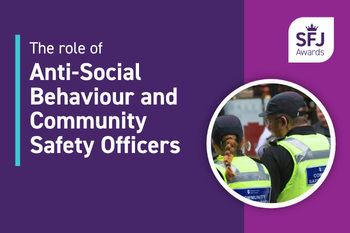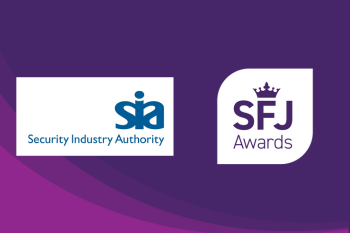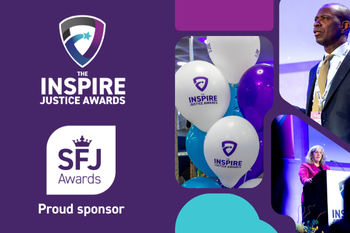This week is National Apprenticeship Week (NAW) – an annual celebration of all things apprenticeships.
To coincide with NAW 2024, we invited employers from across the public sector to give their take on what apprentices and apprenticeships bring to the table.
Apprenticeship leads Ashley Roberts of Merseyside Fire and Rescue Service, Kate Hull of Total People, Tracie Leahy of Weston College and Christine Arnold of Practice Plus Group (Health in Justice) share their experiences with us.
What key skills are important for an apprentice to learn in order to be successful?
AR Our apprentices develop a wide range of skills, but the most fundamental skills are around communication, cohesion and collaboration because Fire and Rescue is a true team effort.
The technical skills will come with time and outstanding training, but the values that apprentices bring to the organisation make us a much more effective overall.
KH We work in partnership with our employers to ensure they have a highly skilled workforce with the aim of a long-term career within the custody and detention sector. Professionalism, integrity, building confidence, reflective practice and communication skills are all key skills for apprentices to learn in the Custody and Detention Professional apprenticeship.
TL Weston College and Avon Fire and Rescue have a collaborative approach to working with a variety of apprentices from all different walks of life. Seeing apprentices grown and develop over the duration and succeed is so rewarding for all. In collaboration, we reviewed the apprenticeship standard and also took account of the values and cultures from Avon FRS to distinguish that the key skills are communication, team working, resilience and wellbeing.
CA One of the important skills would be emotional intelligence and effective communication, including excellent listening skills too. This is important in any organisation but maybe more so in healthcare and especially, health in justice, as the patients we provide care for can be so vulnerable.
What is the most challenging thing about becoming an apprentice in your sector?
AR The most challenging thing about becoming an apprentice in the fire sector is the public’s perception of the role of an apprentice. Our apprentices make up a significant proportion of the organisation who are all valued members of the teams. From Firefighters to Fire Control to Facilities staff, all of which make a valuable contribution to serving our community.
KH The nature of the job, it is extremely challenging and unpredictable, and it can be difficult for some learners to adapt to the nature of it. Having a work/life/education balance is important as it can be overwhelming.
TL Most firefighters would say the application process! Firefighters have a robust interview process which is very well contested and many apply 2 or 3 times before being accepted, however this supports the skills needed to be an exceptional apprentice firefighter.
CA Learning to manage time effectively and being able to focus on learning as well as continuing to support the team to provide quality care. This is particularly challenging when short staffed of course and the impact in smaller teams can be felt more keenly. They are also limited with not being able to take equipment such as laptops and mobiles on to site so working out the best ways to access learning materials online can sometimes be difficult.
What is the most rewarding thing aspect of apprenticeships in your experience?
AR The most rewarding part of being involved in apprenticeships is that I know I am contributing to filling skills gaps, developing provision for local people and building a programme that is high quality and sustainable. Effecting change on a national level has been a personal highlight for me, achieving the Top 100 status and National Awards although very important will not drive improvements on their own. Getting passionate colleagues to share best practice is something that I strive for, and this has been a real success for me.
KH Seeing learners achieve, especially those that may have struggled in previous education establishments, have learning needs or never thought they would make it to the end.
TL As Weston College are the training provider, it is about supporting the employer to achieve their objectives plus supporting the skills gap and for the apprentice, being part of their journey to achievement and success is so rewarding to be able to share!
CA Seeing individuals develop confidence in their knowledge and skills and be able to use these in their roles. It is amazing when they then take on new roles and develop further, advancing in their careers and achieving their dreams. For example, knowing people who have left school with no qualifications eventually qualifying as a registered nurse with a degree and seeing how proud they are.
How do you help your apprentices to prepare for their End-Point Assessment (EPA)?
AR Our preparation for End-Point starts on day one. We work alongside the End-Point Assessment Organisation (EPAO) to ensure our apprentices progressively build the foundations needed to meet the milestones along the way. This ensures our apprentices get the support that they need, the training that’s required and have the confidence to achieve.
KH We embed the EPA requirements throughout the programme so learners fully understand the expectations. We will ensure the learners know what they need to do if they want to push for distinction. Towards the end, we will carry out mock professional discussions and carry out gap analysis’ where necessary.
TL Working as a team, with apprentice, employer and training provider is essential for preparation, also a good supportive relationship with the End-Point Assessment company is a must!
CA Many of the apprenticeships we are involved with have integrated EPA and we aim to have regular contact with apprentices and training providers to check on their progress and any difficulties or challenges throughout. We have a Clinical Practice Educator in our team who works closely with nursing apprentices supporting with placements and supervisions as required. We also ensure that all apprentices are supported by a practice supervisor and assessor in their workplace.
What tips do you have those who are interested in an apprenticeship in your sector?
AR There are more opportunities than just firefighter roles. Speak to your local careers service or the apprenticeship service to have a look at the other apprenticeships available. There are some case studies on our website which are a useful resource for those interested in an apprenticeship.
KH These are my top 5 pieces of advice for apprentices:
- There is always support available if you need it.
- Push to achieve your highest potential.
- Know that obtaining the apprenticeship can open doors for you in your career.
- It’s never too late to obtain new qualifications.
- It will support you in becoming a highly-skilled officer.
TL Apply and apply again! Read and understand the values and cultures within the fire service. Take a visit to a local station and meet current apprentices.
CA Research the apprenticeship programme and the role it may lead to ensure a full understanding of what is being applied for and the commitment required. If you are already working for an organisation I would suggested discussing with your line manager and extended team to be sure the support required will be available. Also, plan carefully how to manage your time and balance work, family and learning effectively to be able to stay on track. Apprenticeships aren’t easy, but they’re definitely worth it.
SFJ Awards is a preferred End-Point Assessment Organisation for the protective services sector, with industry-leading expertise in policing, fire and rescue, custody and detention, and more. This National Apprenticeship Week #NAW2024, follow @SFJAwards on X (formally Twitter) for live updates and insights into life as an apprentice in the protective services.





